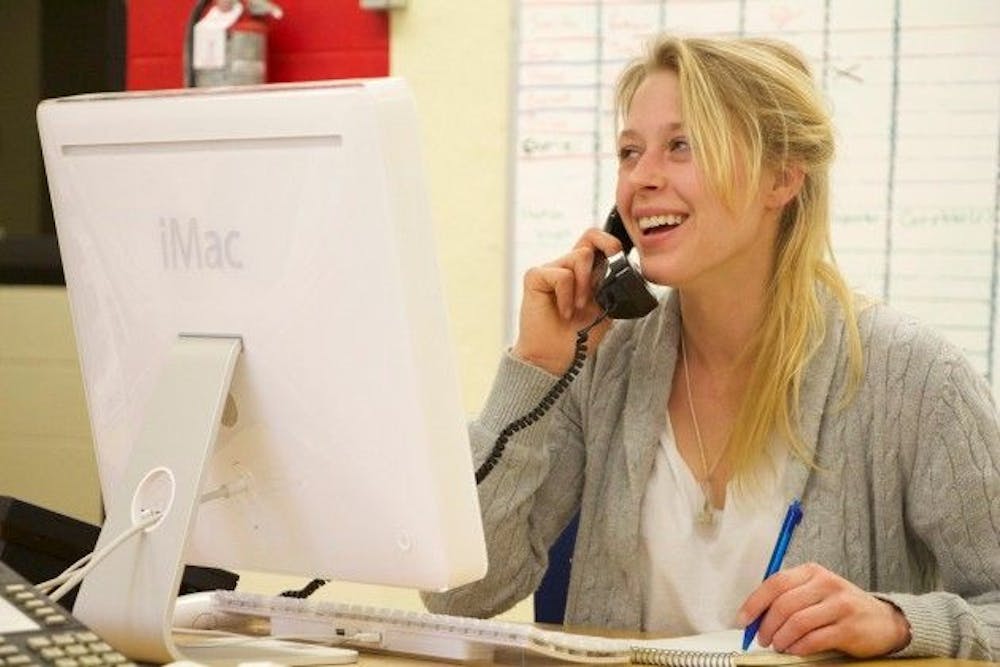Carol Valencia is working as a marketing intern this spring semester but not in a cubicle. Lounging at home in her pajamas or on the go from her smart phone, she writes blog posts, updates social media platforms and engages weekly in twitter chats for a branding firm without stepping foot in an office.
As a full-time managerial economics student at the University of California Davis, working an internship online gives Valencia the flexibility to also work a part-time job on campus as an academic peer advisor.
"I do have deadlines, but I don't have to be at an office and have someone watch over me to get the tasks done," Valencia said.
Virtual internships, also called remote internships, allow students to complete all work off-site. A computer with Internet access and the self-discipline to get work done, is all that is required for the job.
Technology and social media growth has spurred the popularity and demand for virtual internships. Media and marketing businesses are some of the biggest industries using virtual interns because much of the work in these fields is done exclusively online.
Start-up companies in particular are realizing the benefits, and low overhead, of hiring virtual interns versus in-office interns.
Place based internships can be inaccessible to students who don't live in large metropolitan cities, where some traditional internships are held and attract students on summer break. Employers located in smaller cities have a hard time attracting interns and often turn to virtual interns.
Alexandra Patterson, a University of North Carolina at Chapel Hill library science graduate student, has completed seven virtual internships, three of which she worked while studying abroad.
"I went to a really small school, Kenyon College in Gambier, Ohio, that wasn't close to many metropolitan areas," Patterson said. "When I realized that I wouldn't have the opportunity to do traditional internships during the school year, I put feelers out about virtual opportunities."
Patterson liked that she could fit a virtual internship into her schedule along with having the ability to break internship tasks into chunks that she could complete throughout a day.
"Most of my internships required between 10 to 20 hours a week," Patterson said. "For the first few weeks, I had Skype calls with employers to train and learn the ropes, but after that I was on my own. The tasks were pretty standard - write this article, upload this webpage."
The University of Memphis Experiential Learning Lab, a department within the University College, posts internships that accrue college credit as well as give students the ability to earn college credits for past work experiences.
"We receive some internships from companies that ask for a remote intern," Experiential Learning Lab Program director Kelly Penwell said.
Penwell views remote internships as progressive and a great way to prepare students for a future in a digital world.
"If that's where our world is going, I think that as an education system we need to prepare students for where the direction is headed," Penwell said
In theory, virtual internships are the same as online education, just applied differently, according to Penwell.
Placing students in a safe internship environment is one of the Experiential Learning Labs highest priorities.
"With virtual internships, we know you are in a safe environment working independently in an way that works for you," Penwell said.
The Experiential Learning Lab's largest concern with remote internships is making sure students are supervised and getting feedback from an employer who is making the connection between what is being learned in the classroom and what is being executed in the internship.
To those who believe that virtual internships lack the opportunity to network in their chosen field, Penwell believes that people can network online much more quickly and broadly than in person.
The Experiential Learning Lab's new intern qualify program cultivates activities and skillsets to ready students for an internship environment.
For Penwell, the best advice for a college student is that employers "genuinely want to help when they know you are engaged and really want to help yourself."
According to Penwell, the market for virtual internships is growing, and he hopes that they continue to do so.
"I definitely would like to see more remote internship opportunities open up for students to compete with environments like NYC and Washington, D.C., from a remote basis here in Memphis," she said.




